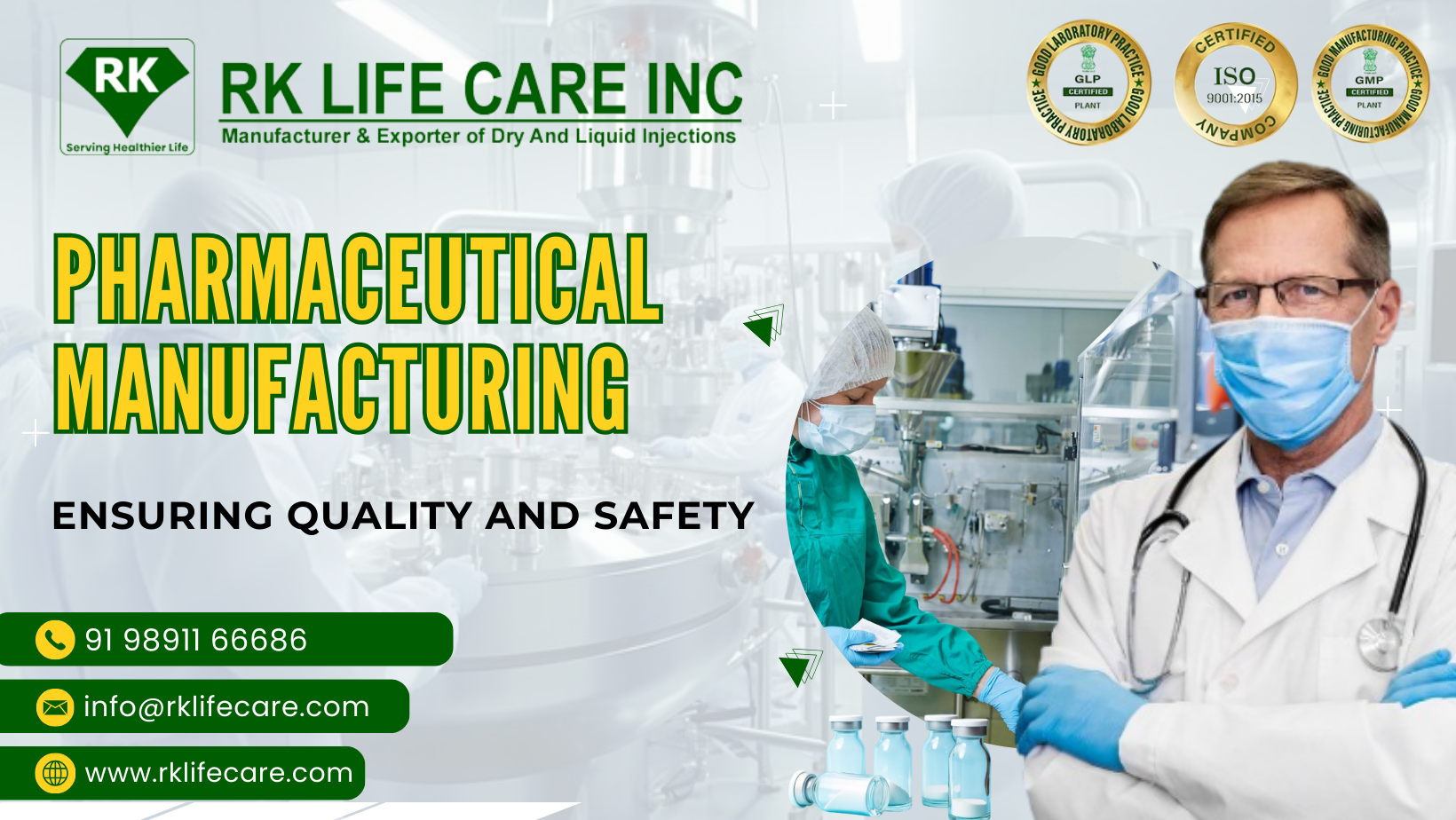
Pharmaceutical manufacturing plays a vital role in global healthcare, providing safe and effective medications that millions of people rely on every day. Behind every tablet, vial, or injectable drug lies a complex, highly regulated process designed to maintain the highest standards of quality, safety, and reliability. As the demand for new therapies grows, manufacturers must continuously refine their processes to meet stringent regulatory requirements and deliver products that patients can trust.
Why Quality is Essential in Pharmaceutical Manufacturing
In pharmaceuticals, quality is not just a benchmark—it's a necessity. Even a slight deficiency in a drug's composition, efficacy, or purity can jeopardize a patient's health. Unlike other industries where defects might merely be inconvenient, defects in pharmaceuticals can be life-threatening.
Key reasons why quality is essential:
- Patient Safety: Ensures the absence of harmful contaminants or defects.
- Therapeutic Efficacy: Guarantees that the medication performs as intended.
- Regulatory Compliance: Prevents costly recalls, legal issues, and reputational damage.
- Public Trust: Builds confidence in pharmaceutical companies and the healthcare system.
The Role of Good Manufacturing Practices (GMP)
Good Manufacturing Practices (GMP) are the backbone of pharmaceutical quality assurance. These guidelines are enforced globally by regulatory bodies such as the FDA, WHO, and EMA.
GMP ensures:
- Controlled and repeatable production processes
- Accurate documentation at every stage
- Well-trained personnel
- Verified and calibrated equipment
- Sourcing of safe raw materials
- Robust quality control and quality assurance system
Quality Assurance (QA) vs. Quality Control (QC)
Quality Assurance (QA)
- Prevents defects
- Focuses on systematic processes and documentation
- Includes audits, SOPs, and process validation
Quality Control (QC)
- Detects defects
- Involves laboratory testing of materials and finished products
- Ensures that products meet all quality specifications
Key Stages of Pharmaceutical Manufacturing
1. Research and Development (R&D)
Here, scientists create and test new drugs to ensure they are safe and effective.
2. Material Sourcing
Only high-quality materials are selected to ensure the drug works correctly and is safe.
3. Production
The drug is manufactured through stages such as mixing, shaping, filling, sterilizing, and packaging.
4. In-Process Testing
Checks are performed during drug manufacturing to ensure everything is consistent and correct.
5. Final Product Testing
The finished drug is tested to ensure it works, is safe, and is free from contamination.
6. Packaging and Distribution
Drugs are safely packaged and delivered securely to pharmacies, hospitals, or patients.
Ensuring Safety at Every Step
Safety is integrated into every stage of pharmaceutical manufacturing. From raw material selection to final batch release, preventative measures, testing protocols, and monitoring systems guarantee that each product meets the highest safety standards.
1. Raw Material Safety Checks
All materials are tested for purity, identity, and contamination risks.
2. Environmental Monitoring
Manufacturing areas are monitored for airborne microbes, particulates and controlled for temperature and humidity.
3. Equipment Sterilization and Calibration
Regular sterilization, calibration, and preventative maintenance of machinery are performed to minimize contamination risks.
4. Strict Personnel Hygiene and Training
Employees follow gowning procedures, hand hygiene protocols, and sterile handling techniques, along साथ continuous training for safety compliance.
5. Real-Time Monitoring and Automation
Smart systems detect deviations instantly, reducing human error and improving product reliability.
6. Batch Tracking and Traceability
Digital records document raw materials, production stages, test results, and equipment used for complete traceability.
7. Post-Market Surveillance
Even after release, safety monitoring continues through adverse event reporting and recalls if necessary.
Challenges in Pharmaceutical Manufacturing
Despite technological advancements, manufacturers face the following challenges:
- Regulatory Complexity: Adhering to strict regulations for drug safety can be confusing and time-consuming.
- Contamination Risks: Drugs can become unsafe if germs or impurities enter during production.
- High Production Costs: Safely manufacturing drugs requires expensive equipment and materials.
- Supply Chain Vulnerabilities: Delays or shortages in materials can disrupt drug production.
- Rapid Technological Change: Constantly evolving technology means employees and systems must continuously learn and update. Future: Technology-Driven Quality and Safety
The Future: Technology-Driven Quality and Safety:
-
AI-Based Quality Inspection: Computers inspect drugs for defects more quickly and accurately.
- Robotics for Sterile Operations: Robots handle drugs in clean areas, reducing the risk of contamination.
- Continuous Manufacturing: Producing drugs continuously instead of in batches speeds up production.
- IoT-Enabled Monitoring: Smart sensors track machines, environments, and production in real time.
- Real-Time Release Testing (RTRT): Drugs are tested in real time, allowing safe products to reach patients faster.
Conclusion
Pharmaceutical manufacturing is built on a foundation of quality and safety. By integrating strict GMP guidelines, robust QA/QC systems, advanced technology, and comprehensive safety measures at every step, RK Life Care Inc ensures that every medication reaching patients is safe, effective, and reliable.
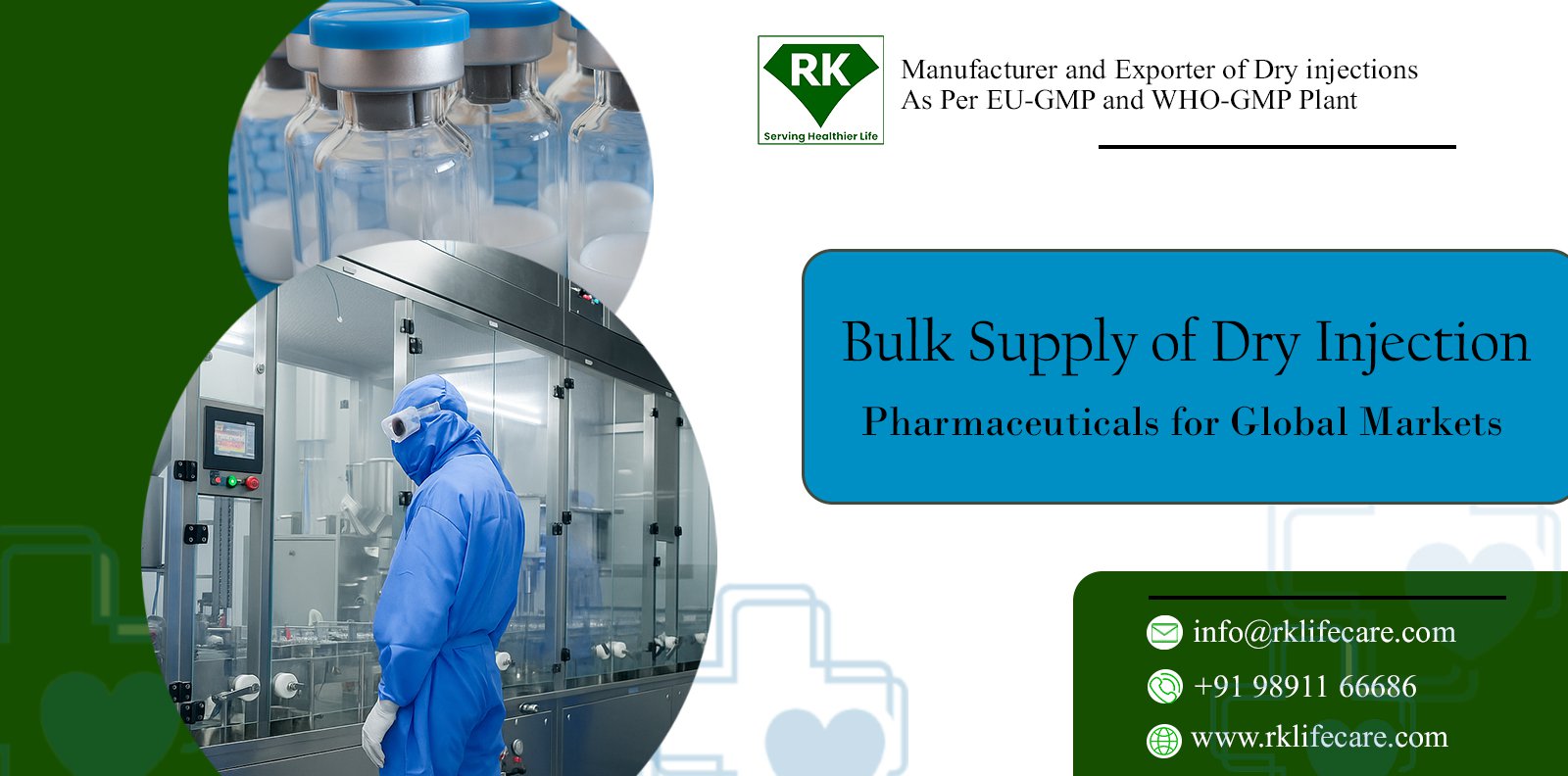
06 Jan 2026
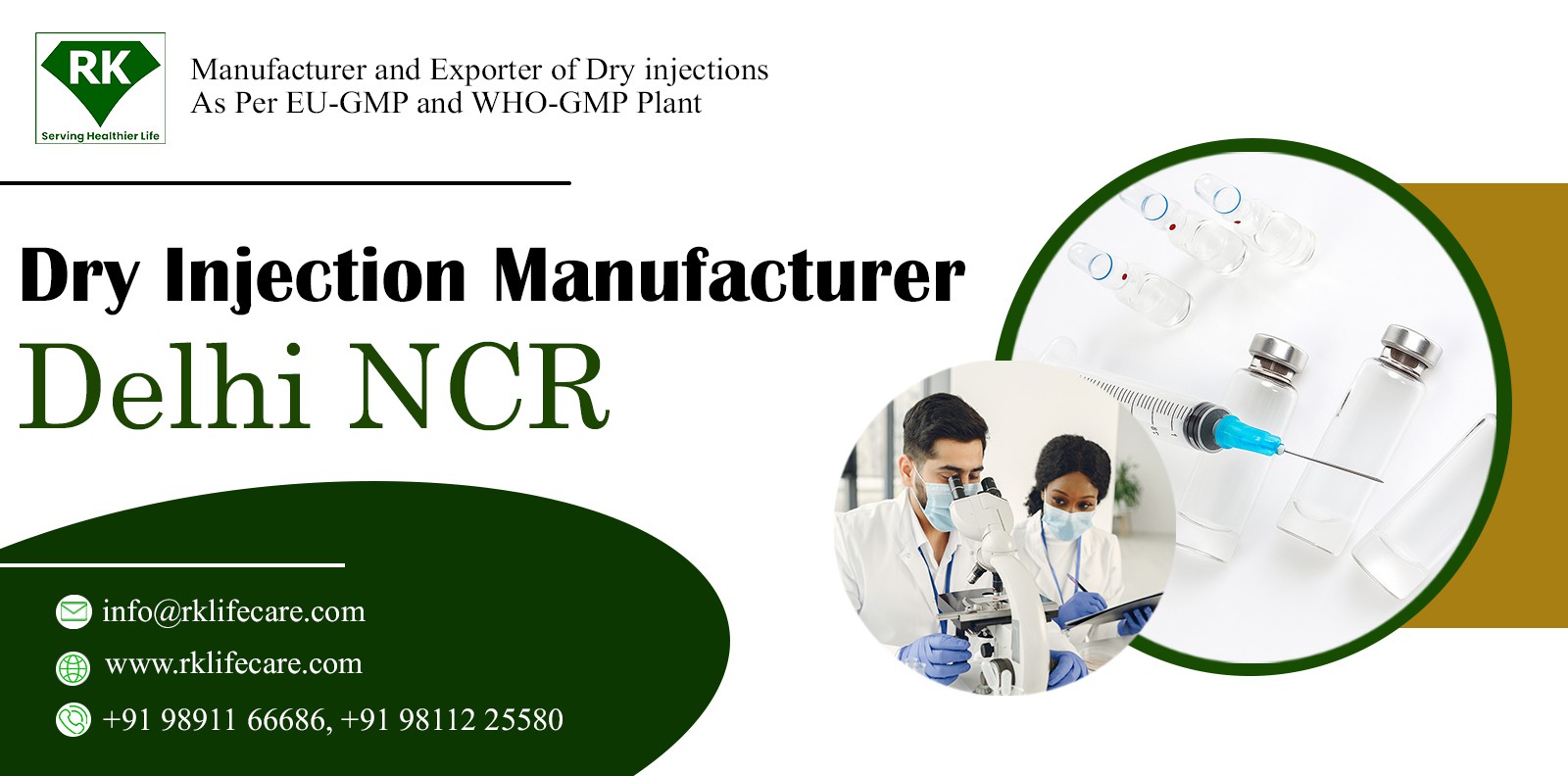
29 Dec 2025

27 Dec 2025
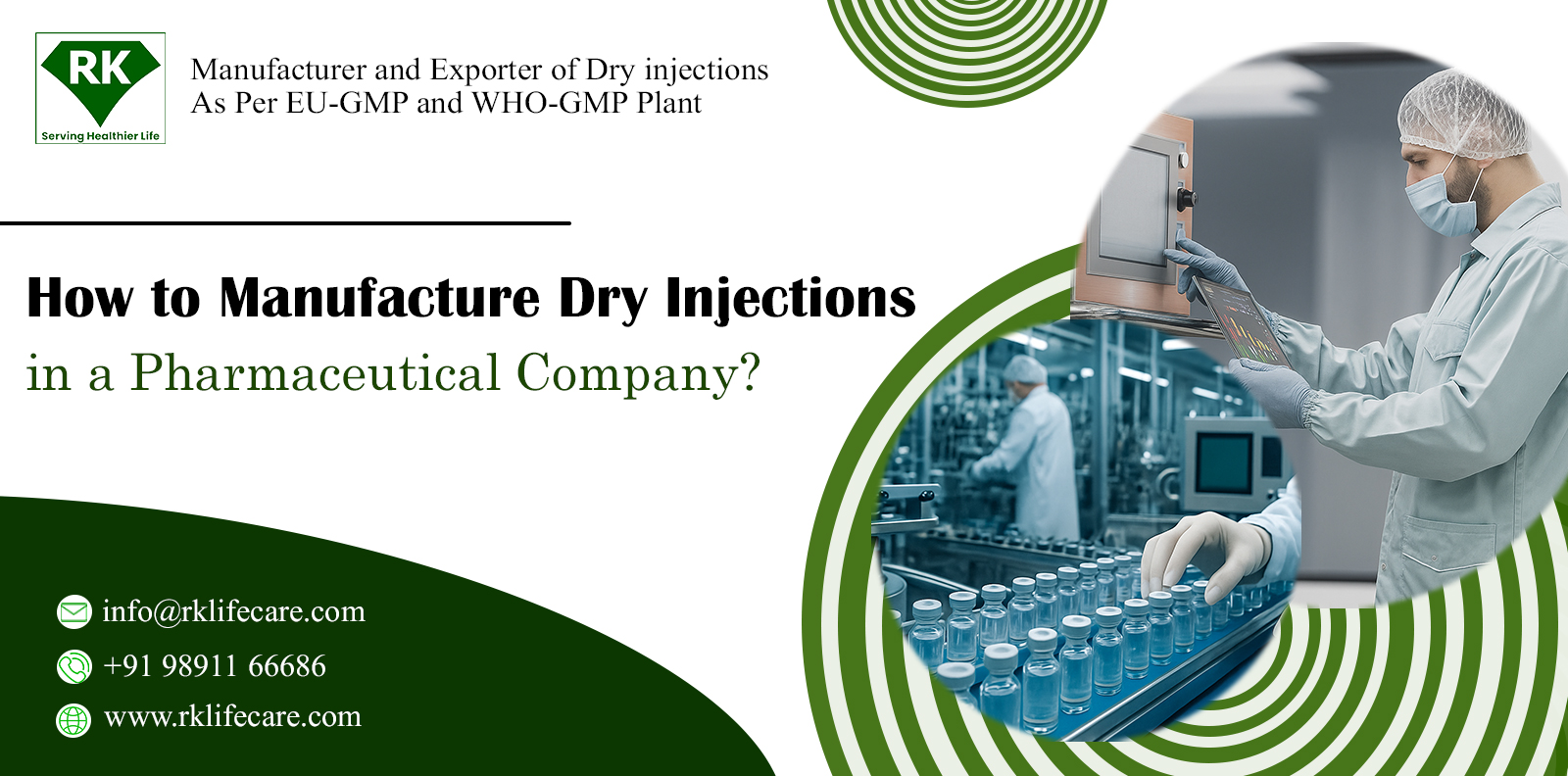
13 Dec 2025
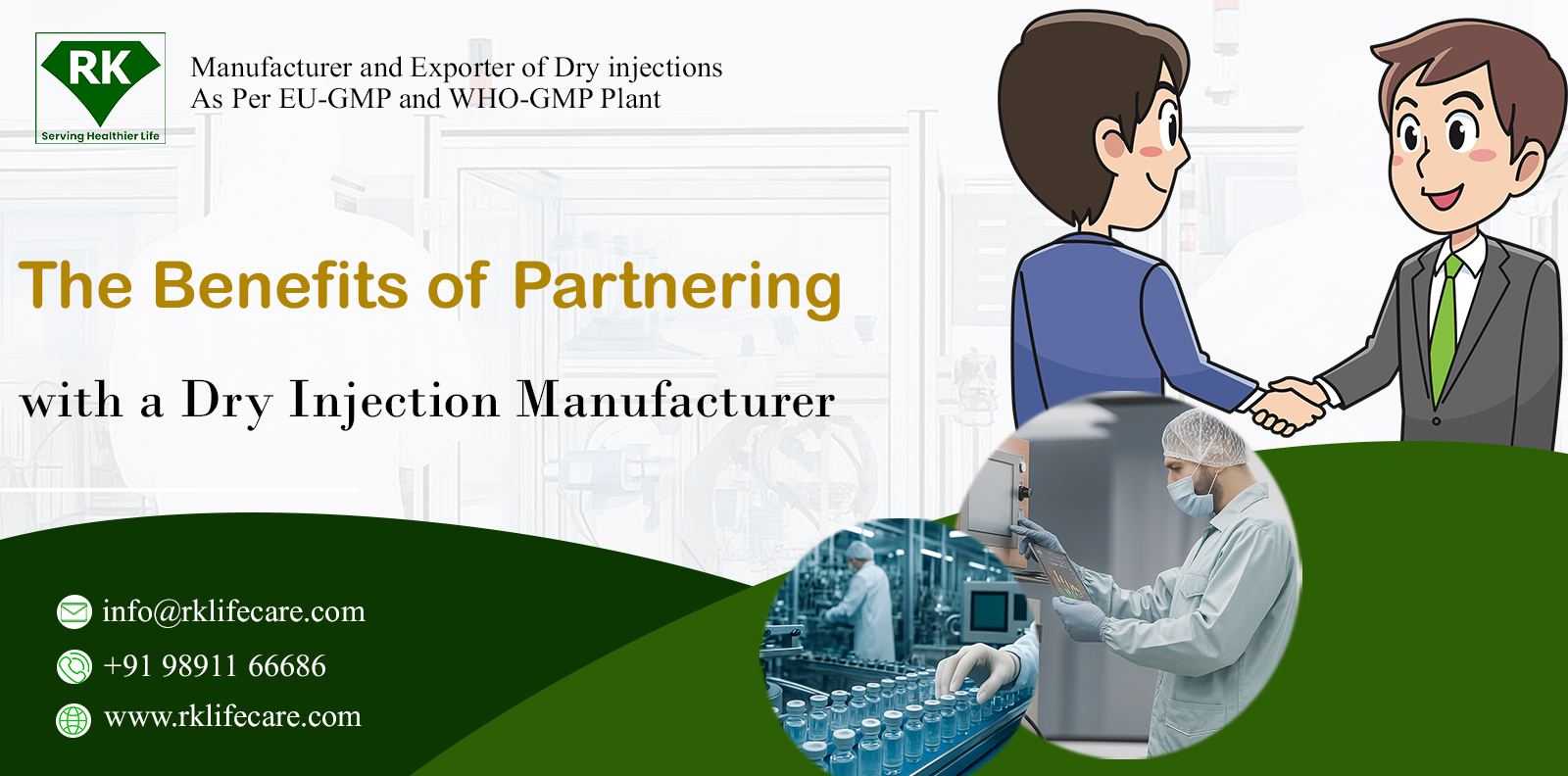
08 Dec 2025